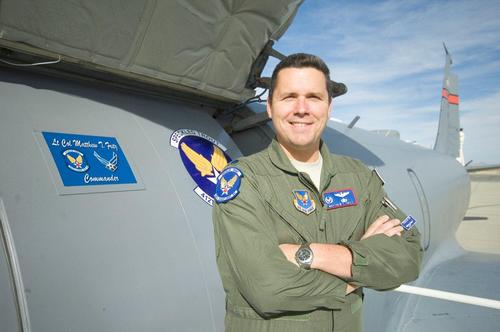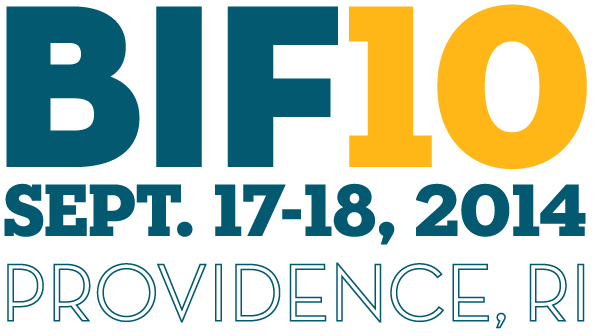

This is one of a 10-article series of conversations with transformational leaders who will be storytellers at theBIF10 Collaborative Innovation Summit in Providence, RI, on Sept. 17-18
Leading a team of 700 people through an enterprise-wide change management process on a tight schedule is formidable enough when undertaken in the business world. Imagine, then, the difficulty of doing so in the Afghanistan war zone. Such was the leadership challenge of Col. Matthew Fritz, who just returned to the U.S. last week from a stint as Chief of Staff of a 16-nation coalition.
The coalition has been tasked since 2007 with rebuilding and modernizing the Afghan Air Force, which launched in 1924, but by the mid-2000s had dwindled to less than a dozen planes. Col. Fritz’ leadership term began in an atmosphere of tension created by President Obama’s announcement that the U.S.-led coalition would have to compress its timeline and withdraw from Afghanistan by the end of 2014.
+++
Innovating in Afghanistan certainly brings new meaning to the corporate term “change or die”. Over the course of the project, Col. Fritz had to resolve vast technological limitations and overcome cultural and language barriers. Together, he and his team synchronized the activities of 16 nations, spread across six geographical locations within Afghanistan, to build air power capability and ensure security for the country’s future.
The colonel, who in his spare time curates a blog at GeneralLeadership.com and tweets management insight from his(@fritzmt account to 95,000+ Twitter followers insists that lessons gained on the battlefield have many applications in the boardroom.
“People may not see innovation as one of the core competencies that come out of a military career,” Fritz says, “It’s actually the opposite — military leaders deal with change in complex situations every day.”
As a leader, “I am constantly finding ways to make my message connect with my team,” Fritz says. He considers himself a firm believer in “getting feedback and exchanging stories” — perhaps an unusual admission from a colonel who commands such authority.
Expected to deliver change on an incredibly tight schedule, Fritz encouraged his team to engage in conversation with their Afghan counterparts, in the hope of getting valuable feedback. The result: the coalition and their Afghan partners participated in one of the most open exchanges in the history of the mission. As a result, Fritz claims, they were able to “question basic assumptions and together, transform the training process.”
He adds, “Leaders often get wrapped up in the brilliance of their ideas and forget to include their teammates… Americans are used to doing things the ‘American way’; but in this case, what’s important was being Afghan-right.”
+++
In conversation via Skype from Afghanistan a few weeks before his return to the U.S., the square-jawed, direct-speaking Col. Fritz makes it clear that he will not discuss politics (“because I don’t influence that”). He is a man of ideals – “more than just a guy in a uniform,” Fritz says.
One ideal Fritz lives by is that everyone should embrace “service” in their day-to-day lives, “in businesses, teams, churches and communities,” he says. He believes service should not be a concept singularly assigned to the military.
Fritz traces this ideal back to his grandfather, a shopkeeper in small-town Arthur, Illinois, who also served as the town’s mayor. Grandfather modeled for grandson the behavior of the ideal citizen — committed, engaged, proactive. “He used to say, “If it’s to be, it has to be me.’ That’s something I grew up with. Especially in a small town, you’re expected to participate in church, community and school; otherwise it just isn’t going to work.”
As a first step, Fritz recommends that we slow down and be more intentional. Talk to people, listen to them, see what they know, he says, just as his grandfather did while sweeping the sidewalk in front of his store.
Matthew Fritz looks forward to sharing his story this month at the BIF10 Collaborative Innovation Summit, a storytelling jam featuring transformation leaders, hosted annually by the nonprofit Business Innovation Factory (BIF) in Providence, RI.
How he helped to bring the Afghan Air Force to self-sufficiency is a tale about how to drive complex change management simply, a tale Col. Fritz is hopeful will resonate with the BIF10 community, a group he began to engage with via Twitter from Afghanistan.
He adds, “I hope to share a perspective into the military that might be a little bit different, and engage in the conversation.” He is “beyond excited” to be participating in his first BIF Summit. “I’m nervous,” he confesses. “I have worked with congressmen and ambassadors, but the folks at BIF10 are real movers and shakers. People whose work I’ve read and learned from, now I get to meet in person!”
The BIF Collaborative Innovation Summit combines 30 brilliant storytellers with more than 400 innovation junkies in a two-day storytelling jam, featuring tales of personal discovery and transformation that spark real connection and “random collisions of unusual suspects.”
Saul Kaplan is the author of The Business Model Innovation Factory. He is the founder and chief catalyst of the Business Innovation Factory (BIF) in Providence and blogs regularly at It’s Saul Connected. Follow him on Twitter at @skap5. Nicha Ratana is a senior pursuing a degree in English Nonfiction Writing at Brown University and an intern at The Business Innovation Factory. Follow her on Twitter at @nicharatana.
More Must-Reads from TIME
- Why Trump’s Message Worked on Latino Men
- What Trump’s Win Could Mean for Housing
- The 100 Must-Read Books of 2024
- Sleep Doctors Share the 1 Tip That’s Changed Their Lives
- Column: Let’s Bring Back Romance
- What It’s Like to Have Long COVID As a Kid
- FX’s Say Nothing Is the Must-Watch Political Thriller of 2024
- Merle Bombardieri Is Helping People Make the Baby Decision
Contact us at letters@time.com